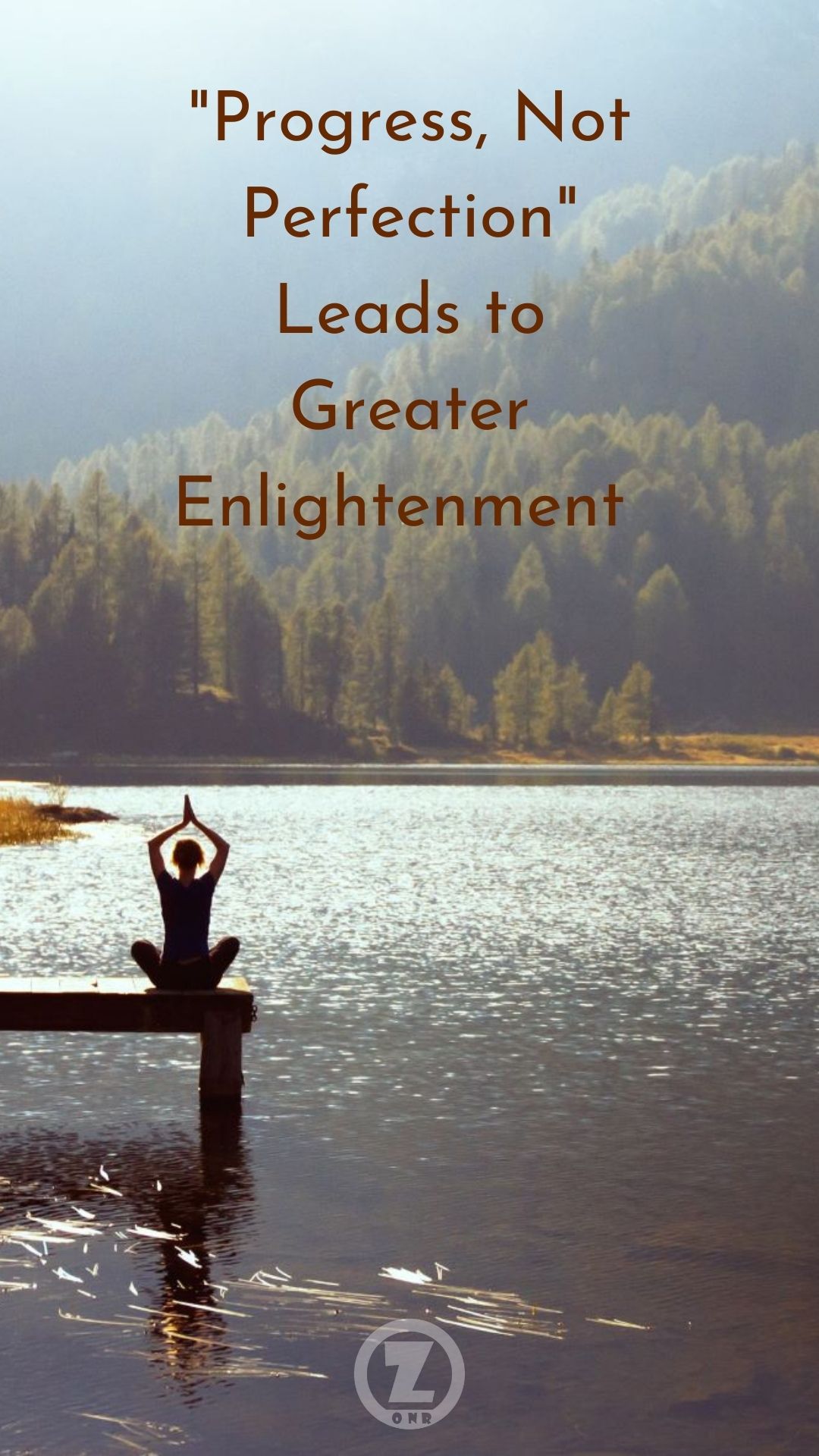From BYRON – “Some indicators I use to gauge my spiritual progression definitely are all internal. I grew up not learning how to regulate my emotions and learned to be reactive to survive. I now know I’m growing in handling situations as an observer though I still get setbacks at times. Progress not perfection I am aware. …”
~~~
Sign up to get Zonr for Today’s Full SFZ
What are some of the indicators you use to gauge your own spiritual progress, lately?
OR
So, can progress matter more than perfection when we try to grow every day?
~~~
The Pleasure Principle – Janet Jackson (4:36)
Buddha’s 14 Principles of Human Life (2:00)
Shingon Buddhist Fire Perfection Ritual – Mount Koya, Japan (22:31)
English Analysis
The idea of progress, not perfection carries deep spiritual and psychological significance. In The Big Book, the writers stress steady growth. They remind us that spiritual life unfolds through willingness and gradual practice, not impossible standards. This view aligns with Aristotle’s concept of habituation in Nicomachean Ethics, where he argues that virtue grows through repeated action, not sudden perfection.
Transitioning from theory to practice, The Basic Text expands the path. It emphasizes humility, surrender, and service as living principles. Viktor Frankl, in Man’s Search for Meaning, supports this by showing how meaning comes from service and responsibility. Growth emerges from experience, meetings, and disciplined practice. Through shared fellowship, progress becomes a daily pursuit.
Furthermore, the wisdom of Gautama Buddha connects diligence to life itself. His teaching highlights attention, presence, and responsibility as essential for awakening. Like the recovery writers, he warns against idleness. Diligence reflects what modern psychologist Carol Dweck calls a growth mindset, where persistence, not flawlessness, fuels transformation.
Together, these voices affirm that progress creates genuine freedom. Demanding perfection destroys hope, but valuing progress builds resilience. Spiritual life thrives when humility meets steady effort. Each small step deepens wisdom and nurtures compassion.
Spanish Translation
Citas
“Lo importante es que estamos dispuestos a crecer en líneas espirituales. Los principios que hemos establecido son guías para el progreso. Reclamamos progreso espiritual en lugar de perfección espiritual.” (El Gran Libro, p. 60)
“Nuestro programa es una forma de vida. Aprendemos el valor de principios espirituales como la entrega, la humildad y el servicio al leer la literatura, asistir a reuniones y trabajar los pasos.” (El Texto Básico, p. 12)
“Estar ocioso es un camino corto hacia la muerte y ser diligente es un camino de vida; la gente necia es ociosa, la gente sabia es diligente.” – Gautama Buda (563–483 a.C.), Príncipe hindú y fundador del budismo
Análisis
La idea de progreso, no perfección tiene gran significado espiritual y psicológico. En El Gran Libro, los escritores subrayan el crecimiento constante. Nos recuerdan que la vida espiritual avanza con disposición y práctica gradual, no con estándares imposibles. Esta visión se alinea con Aristóteles en la Ética a Nicómaco, donde afirma que la virtud crece mediante la repetición, no con perfección repentina.
Al pasar de la teoría a la práctica, El Texto Básico amplía el camino. Destaca la humildad, la entrega y el servicio como principios vivientes. Viktor Frankl, en El hombre en busca de sentido, apoya esta idea mostrando que el sentido nace del servicio y la responsabilidad. El crecimiento surge de la experiencia, las reuniones y la disciplina.
Además, la sabiduría de Gautama Buda conecta la diligencia con la vida misma. Su enseñanza resalta la atención y la responsabilidad como claves para el despertar. Como los escritores de recuperación, advierte contra la ociosidad. La diligencia refleja lo que la psicóloga Carol Dweck llama mentalidad de crecimiento, donde la persistencia, no la perfección, alimenta la transformación.
En conjunto, estas voces afirman que el progreso crea verdadera libertad. Exigir perfección destruye la esperanza, pero valorar el progreso construye resiliencia. La vida espiritual florece cuando la humildad se une al esfuerzo constante.
Pregunta
¿Puede el progreso importar más que la perfección cuando tratamos de crecer cada día?


Leave a Reply